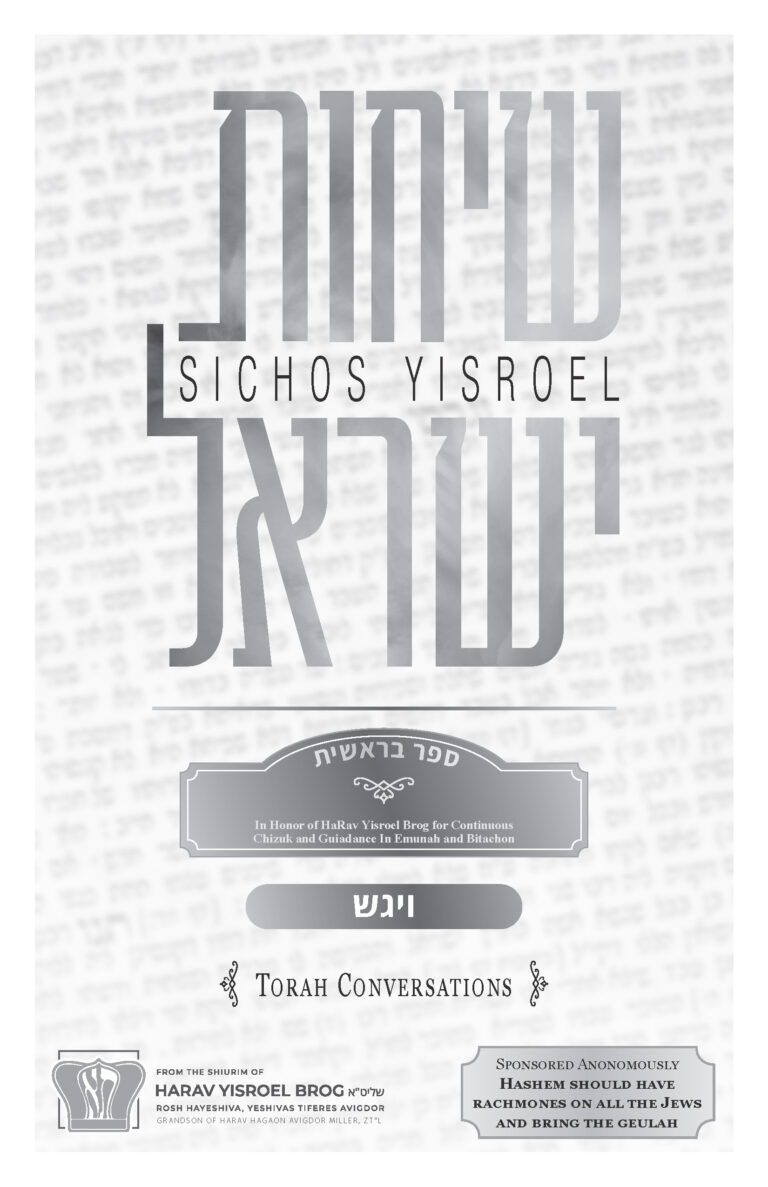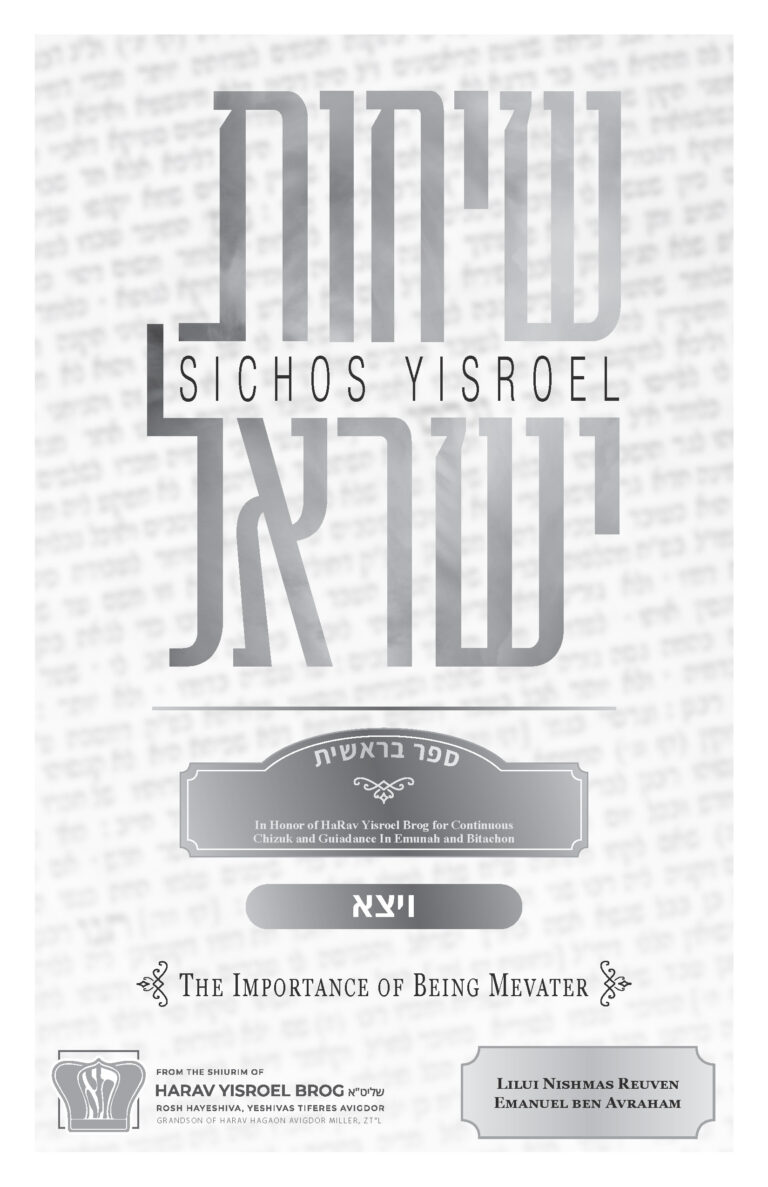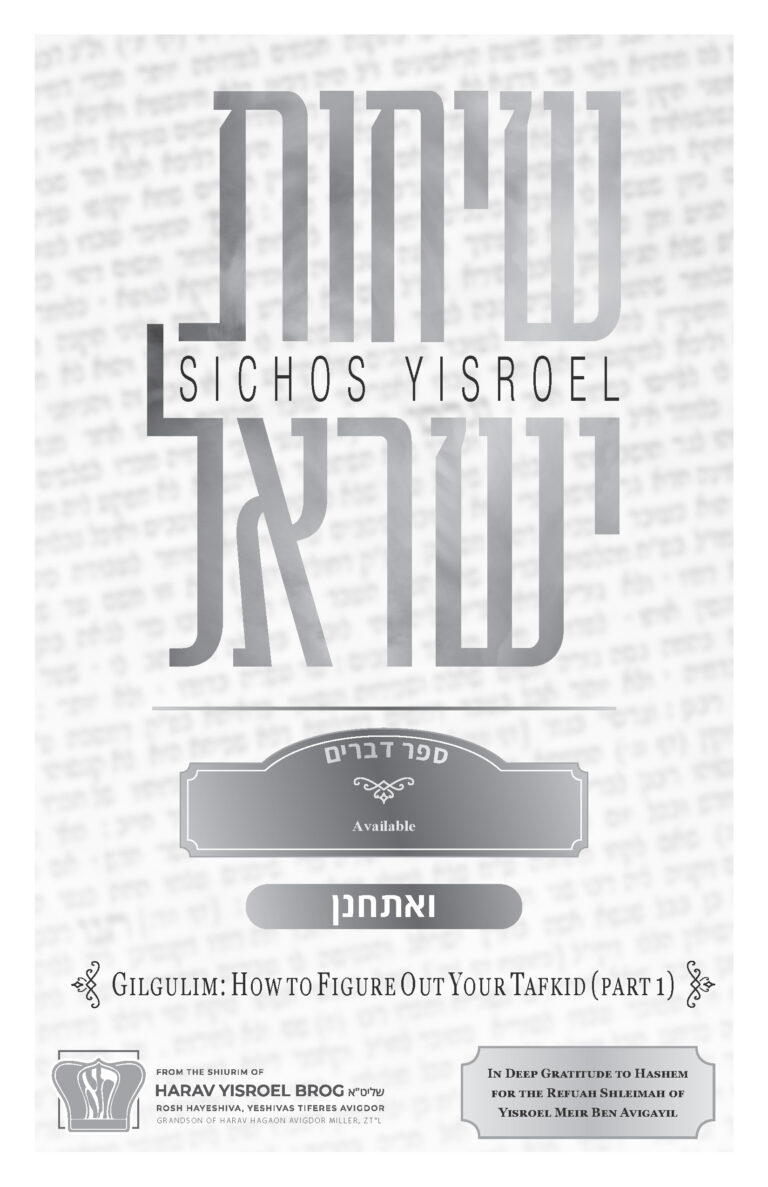Tazria 5782 – Striving For Greatness
Sponsored By: The Rechanik Family In honor of the volunteers that make Sichos Yisroel possible
Visit YTATorah.org
Shiur presented in 5772

Sponsored By: The Rechanik Family In honor of the volunteers that make Sichos Yisroel possible
Visit YTATorah.org
Shiur presented in 5772

One of the great tovos that Hashem did with me is that He guided me to learn by my great rebbi, Rav Meir Halevi Soloveitchik, the son of none other than Rav Yitzchak Ze’ev Halevi Soloveitchik, the last Brisker Rav.

In this week’s parshah we encounter an episode of unimaginable proportions. It’s a ma’aseh that we can’t imagine doing. We can’t even fathom it. But we all descend from the person who is the ba’alas hama’aseh.

Tonight, we are going to begin a series on a subject that is very intriguing to most people, a subject that really has much more relevance than most people wish to acknowledge. It’s the subject called gilgul neshamos. In English, the word is reincarnation.

לכבוד שמחת הנישואין של יוסף חיים בן דינה ומלכה בת רחל מרים ובהתחלת בנין בית נעמן בישראל Visit YTATorah.org Shiur presented in 5781

Sponsored Anonymously Visit YTATorah.org Shiur presented in 5781

The foundation of being an ehrliche Yid and the foundation of somebody being a talmid of Avraham Avinu is based on having good middos (Avos 5:19). And if you lack those good middos, then you’re one of the talmidim of Bilaam Harasha. He’s your rosh yeshivah, he’s your rebbi, and that is what you are drawn to.